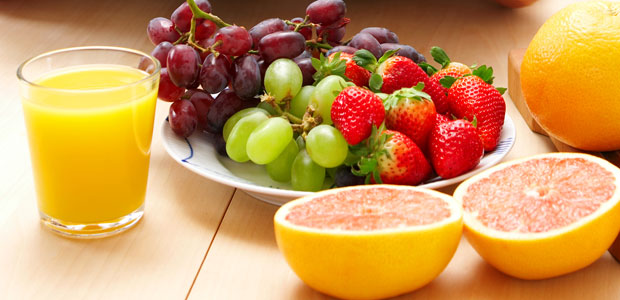Advertisement
A Juicy Way to Better Health
Among the thousands of wonderful health tips that have appeared in the 300 issues of alive since its inception, the suggestion to increase fruit and vegetable intake has always been prominent. It was from the pages of this magazine that many of us first learned about the amazing healing powers of freshly pressed fruit and … Continued

Among the thousands of wonderful health tips that have appeared in the 300 issues of alive since its inception, the suggestion to increase fruit and vegetable intake has always been prominent.
It was from the pages of this magazine that many of us first learned about the amazing healing powers of freshly pressed fruit and veggie juices.
So, when a new study published in 2006 concluded that the frequent consumption of fruit and vegetable juices may significantly reduce the risk of developing Alzheimer’s disease, it merely confirmed what the pioneers of the natural health movement have said all along: fruit and veggie juices keep mind and body young.
Alzheimer’s disease is a progressive degenerative disease of the brain marked by loss of memory, judgment, and reasoning. One in 20 Canadians over the age of 65 is affected by the condition, and health officials expect the number to soar in the coming decades.
In the 10-year study conducted at the Vanderbilt School of Medicine and published in the September 2006 issue of The American Journal of Medicine, 2,000 elderly study subjects who consumed three or more glasses of fruit or vegetable juice per week were 76 percent less likely to develop Alzheimer’s disease than those who averaged less than one glass per week.
Antioxidant Polyphenols
What unique constituents of fruits and veggies might have contributed to these remarkable results? The study researchers believe that antioxidant chemicals known as polyphenols, found in high concentrations in the skin and peel of fruits and veggies, may be responsible for the brain-protective effect offered by fruit and vegetable juices.
Polyphenols help mop up harmful free radicals in the body. In earlier studies, polyphenols were shown to have numerous health benefits, among them a reduction in the risk of cardiovascular disease and cancer.
While the Vanderbilt study did not specify the types of juices consumed by participants, another study, conducted at the University of Massachusetts Lowell and published in August 2006, focused on the benefits of drinking apple juice for improving memory and preventing mental decline. The study, which involved special mice that were a genetic model for human Alzheimer’s, showed that drinking two glasses of apple juice a day may prevent the decline of the neurotransmitter acetylcholine. Previous studies have demonstrated that increasing the amount of acetylcholine in the brain can slow the mental deterioration observed in people with Alzheimer’s.
Concerted Action
Although individual substances safeguard health in specific ways, it’s important to remember that it is the synchronistic action of all constituents of the whole fruit or vegetable that make fruit and veggie juices such potent brain protectors. The vitamins and minerals they contain, along with numerous other phytochemicals, support cellular health and protect the integrity and elasticity of blood vessels, thus ensuring optimal blood flow to the brain. Alzheimer’s has also been linked to poor blood supply to the brain.
Empowered by Research
The potential impact of the studies identifying fruit and vegetable juices as effective agents in preserving mental health and preventing Alzheimer’s disease is enormous, especially in view of current estimates that 750,000 Canadians will develop Alzheimer’s or a related disease by 2031.
Drinking three or more glasses of fruit or vegetable juice each week is something most of us can easily do. Whenever possible, prepare your own fresh juices from organic fruits and veggies. By drinking fresh, organic juices regularly, we can do our part to protect our brain health and revise Alzheimer’s projections downward dramatically!
Popular Polyphenols
- resveratrol in grapes, especially the skins
- quercetin in apples, berries, cauliflower, and cabbage
- rutin in citrus fruit




